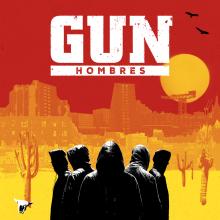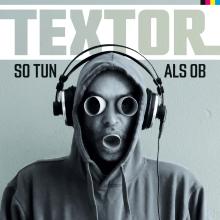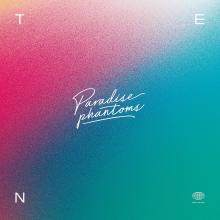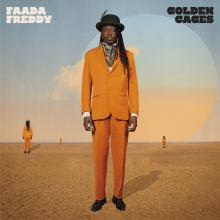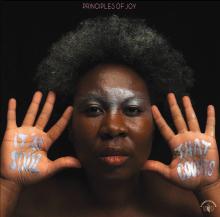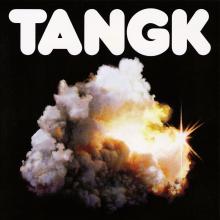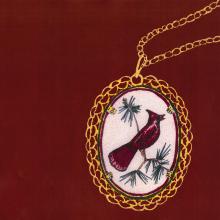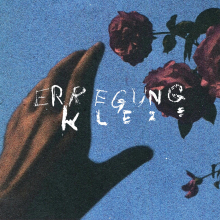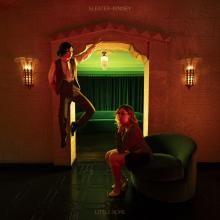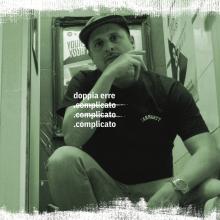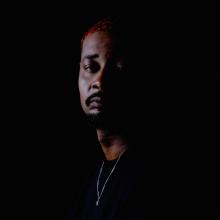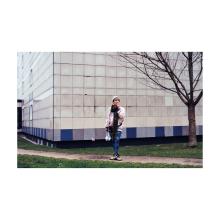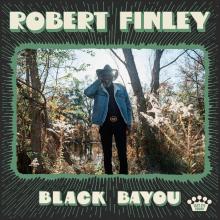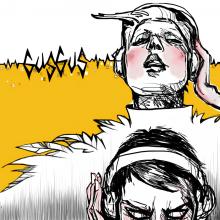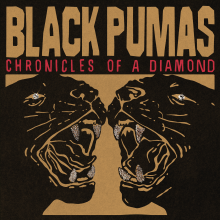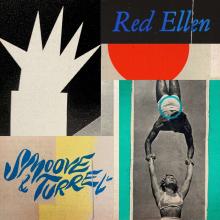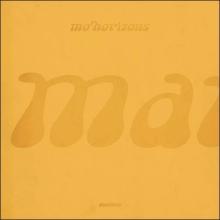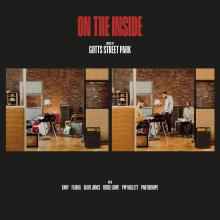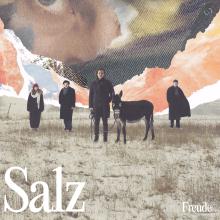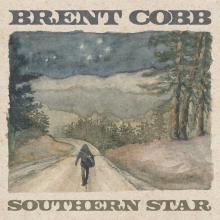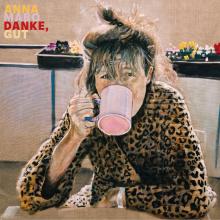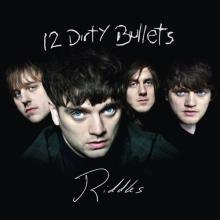
Riddles
Unsere aktuelle Platte der Woche ist definitiv etwas besonderes. Nicht wegen des Sounds – denn Brit-Rock ist sicher keine Neuerfindung, sondern wegen des Releasedates. Präsentieren wir euch sonst meist frisch gepresste Longplayer. „Riddles“ – so der Name des zweiten Albums der Twelve Dirty Bullets aus London dagegen erschien bereits im letzten Jahr und hat seit dem einen Langen weg bis zu uns zurück gelegt.
Hinter dem Bandnamen verbergen sich vier Herren namens Jamie Jamieson, Michael Smith, Josh Jamieson und Joe Cotterill. “Riddles” ist nun ihr ganz persönliches Ergebnis. Sie hatten keine Plattenfirma oder sonstige Herren im Nacken, die ihnen vorschrieben, wie sie klingen sollen. So konnten die Jungs ganz entspannt und ohne Druck am Material arbeiten. Und besser spät als nie, präsentieren wir euch dieses Werk in dieser Woche im Soundcheck.
12 Dirty Bullets took their own hard road from day one. When their debut Downsides To Making A Living was released in 2009 just as the media turned their backs on British guitar bands, they were buoyed by fervent support from their north-west London home turf. These fans helped fill often riotous gigs, several memorable midnight shows at Camden’s Koko.among them. They were committing to the band’s lashing guitar attack, but also Jamieson’s lyrical vision, unmatched since Alex Turner among recent British songwriters: a street-level world of exploited prostitutes, police back-handers, and wild girls dancing on tables with smashed glass at their feet, falling for boys “famous from local hero police pursuits”. All were based on people Jamieson knew well, or had observed. His own place in the songs was among the boys out of their depth who “pretend you smoke, do coke and you’re not broke”, being cut dead by “Good Time Girls” or sneering at the posh “Rock’n’Roll Pretty Boys”. Romantic yearning for something better soared from these realistic roots. But the growing tribe who believed in 12 Dirty Bullets stayed underground.
Downsides To Making A Living got its pop sheen from iconic producer Hugh Jones (Echo & the Bunnymen, The Charlatans). But for its follow-up, the band were thrown back on their own resources. They responded in October 2011 by booking a two-month, 50-gig US tour: an unheard of challenge for an unsigned band in America’s vastness. “It was so intense,” Jamieson, 24, fondly recalls. “We drove the van, 15,000 miles to 35 cities, eight of us sleeping in this glorified motor-home. The shower broke a week in, so we were stopping on the side of motorways and spraying each other with water to get clean. I found America to be more receptive than here. We played anywhere and everywhere, learning how to play in any situation – something we haven’t had to rely on much in the last few years. It was like starting out again. Our tour manager was ecstatic that we’d completed it. Because no one really does a tour of that size when they’re signed, let alone when they’re not.”
Riddles was finished on their return by the band, these days numbering Jamie (vocals, guitar) and younger brother Josh (bass, vocals), with Michael Smith (guitar) and Joe Cotteril (drums) - the latter two recruited since Downsides…. In contrast to the intense studio sessions for their debut, they worked at day-jobs to finance extensive nights of recording, produced by Smith. The album had begun before the tour, with Smith and Jamie alone in the latter’s lounge, then a week’s recording in Brighton, attempting “a completely different route from the first album, getting away from guitars, with in-your-face drums and a pop edge,” Smith remembers. Returning from America intending merely to mix the record in Smith’s own intimate London RnR Studio, their road adventures made them rip up what they’d done. “Now we really wanted to capture what we do live,” says Smith, “and to add something extra. We got a special mic for Jamie which he could hold in his hand as he sang, to take him away from the clinical feel of being in a studio. Some of the songs are so emotional, and Jamie wanted to steer away from traditional vocals. We experimented with distortion and tape-delay on his voice, which brought out the album’s darker feel.”
A piano gifted to Jamieson by an elderly neighbour, who strangely died the day he finally started picking out notes on it, proved fundamental. Upfront on “Don’t Call Me Again” and “Bought Me A Thought”, it’s totemically audible on every song. “We were pigeonholed as a guitar band, and the piano brought a different style of song, it brought new emotions out,” Smith explains. The battered old joanna Jamie had started to write on was though deeply out-of-tune, making recording his work on it a struggle. “We created a software version of that piano,” Smith says. “We contemplated getting a professional piano-player, but we’d made this whole record without external help - so we worked our way round it.”
Even the strain of the day-jobs financing that independence worked in Riddles’ favour. “Jamie would finish at work and then we’d do sessions till 4 am,” Smith recalls. “They say you think differently when you’re so exhausted. Jamie’d come in on some days with a stinking attitude after a ridiculous day. Put the mic in his hand and he’d forget. It brought out some of his best performances.”
All the band proved equally committed. “Me and Joe [Cotteril] have the studio together,” Smith explains. “But whenever they weren’t working, they would all come. Even though it’s not a band’s job, they’d sit in the control room with maybe a computer game, keeping me company. While I was mixing, Jamie was like the studio dog almost, at the back! - asleep on the couch exhausted, with work the next day, there for moral support.”
Smith was clear on his task. Having seen the band inside and out, he knew their biggest strength. “I’ve been making music a very long time, and with Jamie lyrically, it’s just bonkers,” he says. “For a young guy, he sees the world with his eyes open. My goal was purvey those songs.”
Riddles¬ opens with “Dreamers”’ defiant statement of intent: an urban swirl of antagonism from authority and sleepless, street-walking delirium; the starting-gun for an adrenalised opening trio of songs. “We wanted the album to hit hard as you came in,” Jamieson states.
The title track, by contrast, crystallises a reflective, religious theme which permeates the record. Jamieson wrote half a dozen stabs at the song over an eight-month period, finally locking himself in his parents’ shed till he beat it. “I went to Church of England and Catholic schools,” he says. “And it wasn’t until I got out of school and saw the world a bit, that religion just seems ridiculous to me now. We’re locked in a sense in a religious war, aren’t we? Where I grew up in Hayes, a lot of my friends were Muslim, Sikh. And I know that some of them have taken up quite extreme views – kids that I kicked around with in the park probably wouldn’t even talk to me now. I’m still the same person, and I know they’re still good people, but something gets in the way. I suppose I find that very hard to comprehend. I also find it very difficult, this whole thing of flying people back from the war to Wootton Bassett, and now RAF Brize Norton, and just seeing young lads, people, draped in coffins, I have no idea why in this day and age we’re still doing this sort of thing. I’m not political – but it seems fucking ridiculous to me.”
Jamieson isn’t an automatic rebel, respecting authority till it’s abused. “Wander My Way Home” is an evocative acoustic portrait of his and Josh’s early years: late-night street football, thieving from the local shop but mumbling “one day we’ll pay them back”, and “letters from hell” from older boys doing time, convincing them to stick to the straightish and narrow.
“I think we claimed independence as we grew up,” Jamie thinks back. “You run away, mistakes are made.” Wild scenes in early songs such as “Champagne and Cocaine”, sympathetic to and frustrated by a defiant woman on the lash, were observed close-up. “We just had a good time. We used to play football for hours, and run around doing fuck knows what - waste the day. One thing I’ll say about my childhood, the telly was often off, and music was always blaring. Dad was big into The Beatles, Bob Dylan and Bruce Springsteen, and my Mum was into Bob Marley and ska, and all these reggae bands.”
Squeeze gave Jamieson the songwriting bug when he was 7: “That’s where the love of lyrics and story-telling is from.” Then Oasis became Jamie and Josh’s early idols. “It was their belief in a great song, not trying to chase a sound or the back of a scene.” An equally profound influence, stumbled on during Downside…’s recording, was the American outsider musician and schizophrenic Daniel Johnston. “He changed everything for me. He was the first guy that I got into that had struggled all his life, with health, with love, and with his music, but still pursued it out of pure love of art. It hammered home to me that this isn’t about the glam and the money, this is about creating something that is beautiful. Even now, he’s at the forefront of my mind.”
“We’re far too young to grow old,” Jamieson sings on “Don’t Call Me Again”, a thought captured too in early anthem “Keep Chancing”. The euphoric, youthful hedonism you can experience at their gigs, the importance of letting rip, remains in the band’s blood. “As you creep into your mid-twenties, a lot of people are engaged or married, with kids and houses,” he shudders. “And I’m nowhere near any of that shit yet. I believe in songs like that more now than ever.”
At the same time, 12 Dirty Bullets are disciplined in pursuit of their dreams. Jamieson kept a New Year’s resolution to finish two songs a week during 2010, honing his craft. “When we were trying out new guitarists,” he remembers, “one said we were the only band he’d ever been in where we don’t drink at rehearsals, or before gigs. When there’s work to be done, the party’s always after that. We’re working-class, so we’re going to work till we die anyway. We’d rather be working at this.”
Jamieson’s hope for 12 Dirty Bullets’ return is simple. “My big thing is that people get us. I’d rather piss people off and aggravate them than that they feel nothing.”

